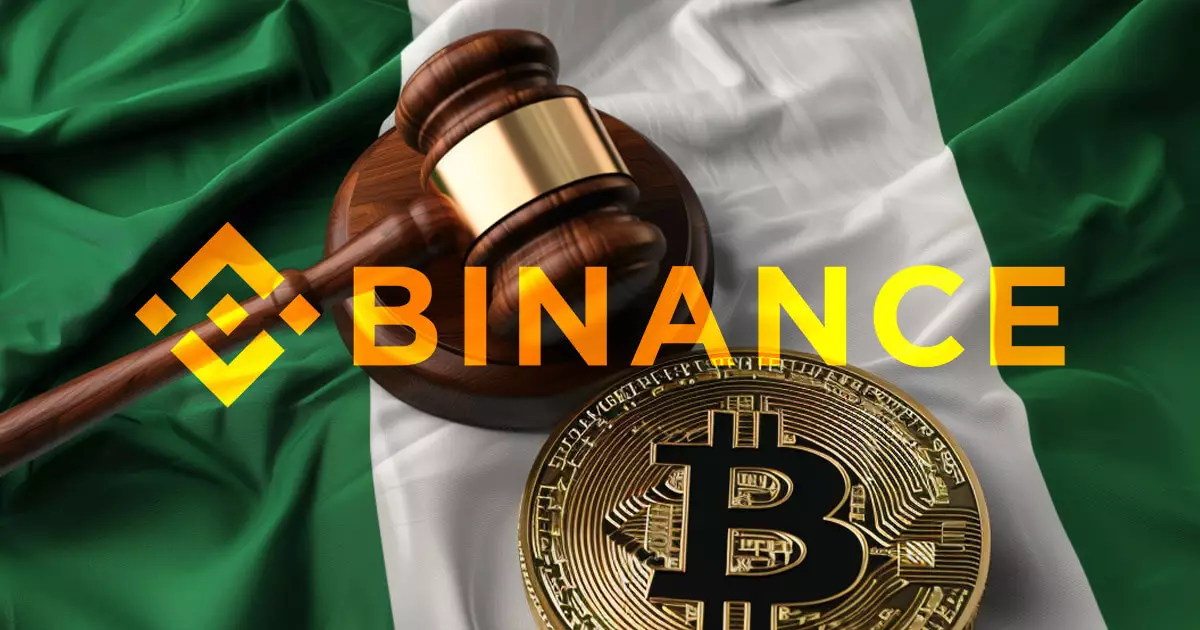The Nigerian legal system experienced a significant development as it officially withdrew all charges against Tigran Gambaryan, a senior executive at Binance Holdings, on October 23. Gambaryan had faced a tumultuous eight months of detention following his arrest in February 2024 upon entering Nigeria. The Economic and Financial Crimes Commission (EFCC) announced the decision at the Federal High Court in Abuja, allowing Gambaryan to finally escape a situation laden with controversy and international ramifications.
Gambaryan’s arrest was initially triggered by a meeting with Nigerian officials concerning allegations that Binance was exacerbating the volatility of the nation’s local fiat currency. While these claims loomed large, the EFCC clarified that Gambaryan was merely an employee of Binance and not involved in any alleged financial misconduct associated with the company. His legal team, spearheaded by Mark Mordi, bolstered this assertion, emphasizing that Gambaryan’s responsibilities did not encompass significant financial decision-making within the organization.
Reverberations Across the Crypto Community
The lifting of charges against Gambaryan comes at a pivotal moment for cryptocurrency in Nigeria. The nation has grappled with issues surrounding regulatory scrutiny and the role of digital currency in its economic landscape. The caution exercised by Nigerian authorities in this case indicates a potential shift towards a more nuanced understanding of the cryptocurrency sector, shaped by ongoing international pressure and advocacy.
Just days before the case dismissal, Gambaryan’s second bail application had been rejected, drawing attention to the increasingly coercive nature of the situation. This raised concerns among U.S. officials, with a coalition of 18 attorneys general urging the Biden administration to take a firmer stance regarding Gambaryan’s plight, effectively labeling him as a hostage and signaling a request for intervention.
Such sentiments resonate deeply within the cryptocurrency community, which has expressed significant discontent over what many perceive as unjust treatment of Gambaryan. Reports of deteriorating health—characterized by afflictions such as malaria and pneumonia—only exacerbated public outrage. The idea that a corporate executive could suffer such conditions in custody raises broader questions about the intersection of global business and local judicial practices.
The Future of Binance and Nigeria’s Economic Strategy
As Binance stands at the forefront of this unfolding narrative, its future engagements with the Nigerian market will likely be scrutinized more closely. While the withdrawal of charges provides a relief, the implications continue to reverberate, influencing perceptions of how foreign businesses interact with Nigerian regulators.
This incident highlights the intricate relationship between cryptocurrency operations and national economic policies. As Nigeria navigates its digital currency landscape, the lessons learned from Gambaryan’s case could potentially shape the regulatory environment going forward. It serves as a reminder of the delicate balance required to foster an environment conducive to innovation while ensuring that regulatory frameworks are robust enough to maintain economic stability—an ongoing challenge for nations adapting to the digital age.
The case of Tigran Gambaryan not only reflects the complexities of international business law but also signals a crucial juncture for cryptocurrency’s integration into Nigeria’s economic discourse.








